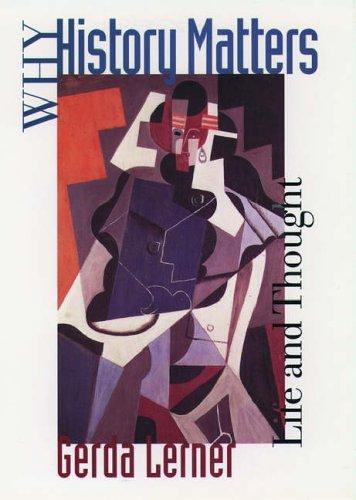and a voice that couldn't carry me far
but I'll tell your story if they kill me
I said I'll tell your story if it kills me
-- The Two Funerals, "Western Apathy"
You wouldn't know it from the obvious lack of posting going on here, but for the past month and a half I've been busier than a beaver at work on a new dam. (…?) Really though, weird storybook-sounding animal figures of speech aside, I've spent the last few weeks re-acclimating myself to 'blog life', or trying, anyway. Most of this time has been spent on:
-- researching and reading about new bands (and other stuff)
-- getting back into the habit of going to shows regularly
-- acquiring and listening to new demos
-- thinking seriously about what I would like to accomplish here
-- working on a visual redesign/update
-- opening up related accounts on twitter, flickr, and formspring as part of said redesign/update and familiarizing myself with said sites
-- grappling with feelings of inadequacy and anxiety, and worrying that I might, in fact, be completely useless
Most of this seems self-explanatory, but per my previous statements regarding talking through and being open about anxiety, the last one could maybe benefit from some discussion. Have, uh, you ever felt like everything you do is kind of, well, dumb? Like every aspiration you have, every effort you make, every project that you care about is ridiculous, and you must be an idiot for expending so much time, energy, and emotion on it? Because sometimes I feel that way. Sometimes I feel that way about this very blog, and like all the encouragement and validation from friends in the world won't make any difference.
So I didn't have plans to post here anytime soon. But then I realized that it was March (?!), and thusly time to celebrate Women's History Month. So I took a break one evening from my research and got out my copy of Why History Matters: Life and Thought by Gerda Lerner.

I flipped to the back and read the title essay (yes, that is a link to the text, so you can read it if you want!) for the first time in years. And then I read it again (it's not very long). Because I was amazed at how incredibly relevant it felt to my experiences with studying gender within the history of 'punk'.
Gerda Lerner is a historian whose focus on Black Women's History and theories of intersectionality were fueled largely by her escape from Nazi Austria and her experiences with anti-Semitism; her essay is about history, national memory, and erasure at the macro-level. I read her work for a feminist theory course with Janelle Hobson, who might actually be the coolest professor I've ever met. Despite her hipness and dedication to real-life people and their needs, the course was still very academically oriented, and our discussion of 'why history matters' still felt pretty abstract.

But Lerner's reasoning as to why history matters is neither abstract nor self-congratulatory. Lerner argues that history matters because it is both a universal, human tool for self-actualization and psychic healing and a weapon used by those in power to justify bigotry and violence. She writes:
"We construct symbolic communities, based on ethnicity, religion, race, or any other kind of distinguishing mark, setting ourselves apart from those different from us, in order to find and enhance our own identity. We look to a past community, our 'folk' of whatever definition, and our stories weave a collective myth into our own narrative. These widespread collective myths can serve a creative, harmonizing function, in stressing shared values, ideas, and experience. They offer us heroes in the past, role models for emulation, and provide us with a coherent narrative which gives shape and order to our experience. The story of Christianity, the life of Jesus, the Protestant Ethic, the American Dream -- these are some of the collective myths which have sustained generations.
"But those kept outside of these myths or those marginalized by them, experience them as destructive. In legitimizing the coherence of the 'in-group' these stories and myths reinforce the deviant status of the 'out-groups.' By making distinctions between 'us and them' appear to be natural, they reinforce a sense of alienation and 'Otherness' in those excluded."
Lerner doesn't mention subculture in her list of 'distinguishing marks', but damn if this doesn't sound like it could have been written about punk and the community that's formed around it in the last forty years. The circular, self-perpetuating process of creating and continually excluding an 'Other' has seeped into punk in that time, and so women-identified individuals, people of color, LGBTQIA folks, non-Westerners, and many others are regularly left out of punk's historical narrative.

But thinking in terms of a historical narrative, and seeing yourself as a potential part of it, is the first step to historical recovery. Lerner also writes that history "gives us a sense of perspective about our own lives" and that "by perceiving ourselves to be part of history, we can begin to think on a scale larger than the here and now." Lerner believes that every single human being is capable of learning about history and using that knowledge to 'vision' into the future and do some kind of good with it.
A few days after I read the essay my best friend called me. When she asked me how I was I told her that I was feeling discouraged, but eventually found myself animatedly explaining who Gerda Lerner is, and why the essay has resonated with me. "That's why I'm still listening to Pussywhipped and The Woods," I said. "Because it's part of my history, and that makes me feel connected to something."
Talking about that simple (not really) act of 'connecting' to a community and its shared history through vinyl and sound and ideas, and thinking about every friend I've ever discussed such acts with, and how all of them, and also tons of people I don't know and never will, are engaging with and contributing to that history? Well, let's just say that my anxiety, though valid and worthy of attention and 'self-compassion,' no longer seemed overwhelming. It seemed incredibly small, and dare I say it manageable, in comparison to punk subculture, its seen and unseen histories, and everything that has been accomplished therein.
So even though I occasionally get that feeling like everything I do is dumb, or like I don't feel terribly confident in this blog, I know that it's not just about me or my feelings. It's about something much bigger. It's part of a larger effort to recover suppressed histories and make them accessible to the people who need them, and that's worth confronting whatever negative feelings and insecurities I sometimes I have over it. It's worth telling your story, our story, our history, even it if kills me. Or even if it makes me feel self-conscious and sort of stresses me out slightly.